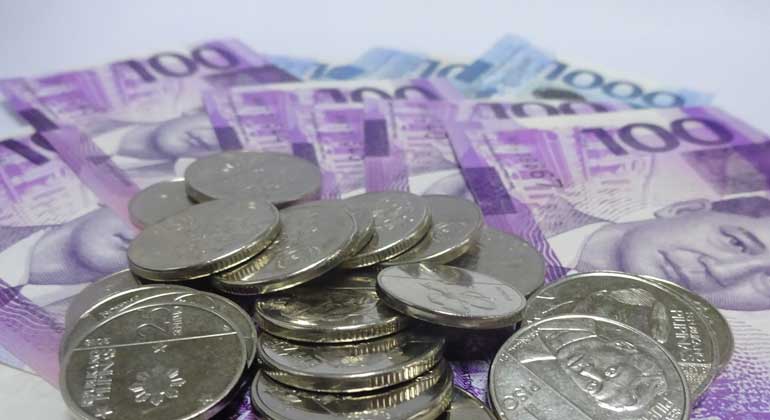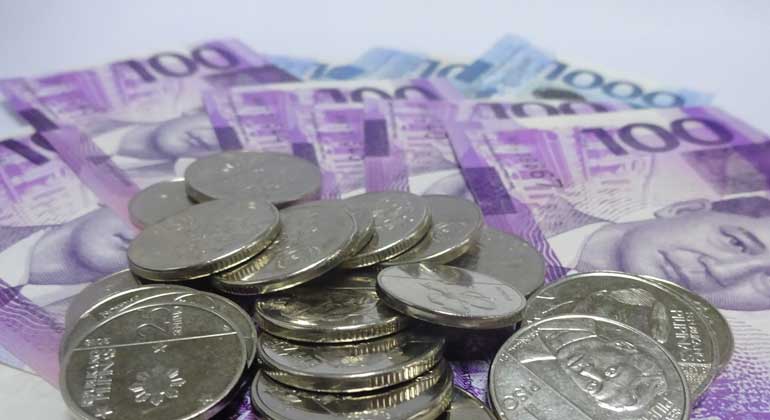
THE PESO strengthened versus the dollar on Tuesday after drug firm AstraZeneca and its partner University of Oxford claimed their vaccine can be 90% effective.
The local unit closed at P48.145 against the greenback on Tuesday, rising by six centavos from its P48.205 finish on Monday, data from the Bankers Association of the Philippines showed.
The peso opened Tuesday’s session at P48.24 to a dollar, which was also its weakest showing for the day. Meanwhile, it climbed to as high as P48.14 versus the greenback during the session.
Dollars traded rose to $747.75 million on Tuesday from $425.4 million the previous day.
A trader said the peso strengthened as global economic sentiment continued to improve on news of progress in COVID-19 vaccine candidates.
“The peso exchange rate was stronger amid continued positive developments on vaccines for COVID-19, especially those by AstraZeneca and University of Oxford,” Rizal Commercial Banking Corp. Chief Economist Michael L. Ricafort said in a text message.
AstraZeneca said on Monday its COVID-19 vaccine was 70% effective in pivotal trials and could be up to 90% effective, giving the world’s fight against the global pandemic a third new weapon that can be cheaper to make, easier to distribute and faster to scale-up than rivals, Reuters reported.
The British drug maker said it will have as many as 200 million doses by the end of 2020, around four times as many as US competitor Pfizer, Inc. Seven hundred million doses could be ready globally as soon as the end of the first quarter of 2021.
The vaccine on average prevented 70% of COVID-19 cases in late-stage trials in Britain and Brazil. The success rate rose to 90% in a group of trial participants who accidentally received a half dose followed by a full dose. The efficacy was 62% if the full dose was given twice, as it was for most study participants.
The 90% efficacy finding was a happy accident, AstraZeneca admitted, noting that it resulted from a dosing error during the trials. The half dose-first regimen will enable the company to seek approval based on far higher effectiveness than 62%, which was still enough for a regulatory nod based on prior discussions.
AstraZeneca Chief Executive Pascal Soriot said the smaller initial dose means limited supplies could stretch even further to vaccinate more people.
The faster rollout means countries that had been drawing up plans to ration vaccines can distribute them more widely, helping to eventually halt the social and economic disruption of a pandemic that has killed 1.4 million people.
The World Health Organization’s (WHO) chief scientist Soumya Swaminathan said the WHO is anxious to see full efficacy and safety data and encouraged other vaccine developers, saying vast quantities and a variety of shots will be needed.
The AstraZeneca vaccine uses a modified version of a chimpanzee cold virus to deliver instructions to cells to fight the target virus, a different approach from Pfizer and Moderna, which rely on new technology known as messenger RNA (mRNA).
AstraZeneca will now prepare regulatory submission of the data to regulators around the world and seek an emergency use listing from the WHO to speed up availability in poor countries.
For today, the trader sees the peso ranging from P48.05 to P48.25 versus the dollar, while Mr. Ricafort expects it to move from P48.10 to P48.20. — KKTJ with Reuters
